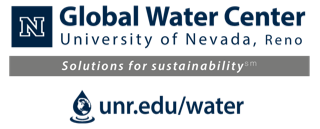Biography
David Hanigan graduated from the University of Missouri - Columbia with a B.S. in Civil and Environmental Engineering in 2009. He was awarded an M.S. in 2011 from the University of Missouri where his research focused on the removal of trihalomethane (THM) and haloacetic acid (HAA) precursors using MIEX and activated carbon.
During his M.S., David was awarded the Paul Kufrin Memorial Scholarship. While working towards his PhD he has received multiple awards, including the Ira A. Fulton Fellowship, ACS Graduate Student Award in Environmental Chemistry, ASU Engineering Dean's Fellowship, and AZ Water Association Scholarship. David's PhD was further supported in part by the prestigious AWWA Abel Wolman Fellowship and the WEF Canham Graduate Studies Scholarship.
His PhD research (2015, Arizona State University) focused on removal, characterization, and identification of N-nitrosamine precursors. Following completion of his PhD studies, he served as a post-doctoral researcher at Arizona State University and studied the implications of nanomaterial use through their life cycle (EPA funded through the LCNano network).
In Fall 2016, David started as an Assistant Professor at the University of Nevada, Reno. In 2022, he was promoted to Associate Professor. Hanigan is affiliated with the Nevada Water Innovation Institute, a shared effort between the local Reno/Sparks water resource agencies and utilities and the University of Nevada. Hanigan is also actively engaged in the Global Water Center, a University of Nevada Center that focuses on having real impact by finding sustainable solutions to drought, pollution, pathogens, and beyond.
During his M.S., David was awarded the Paul Kufrin Memorial Scholarship. While working towards his PhD he has received multiple awards, including the Ira A. Fulton Fellowship, ACS Graduate Student Award in Environmental Chemistry, ASU Engineering Dean's Fellowship, and AZ Water Association Scholarship. David's PhD was further supported in part by the prestigious AWWA Abel Wolman Fellowship and the WEF Canham Graduate Studies Scholarship.
His PhD research (2015, Arizona State University) focused on removal, characterization, and identification of N-nitrosamine precursors. Following completion of his PhD studies, he served as a post-doctoral researcher at Arizona State University and studied the implications of nanomaterial use through their life cycle (EPA funded through the LCNano network).
In Fall 2016, David started as an Assistant Professor at the University of Nevada, Reno. In 2022, he was promoted to Associate Professor. Hanigan is affiliated with the Nevada Water Innovation Institute, a shared effort between the local Reno/Sparks water resource agencies and utilities and the University of Nevada. Hanigan is also actively engaged in the Global Water Center, a University of Nevada Center that focuses on having real impact by finding sustainable solutions to drought, pollution, pathogens, and beyond.
